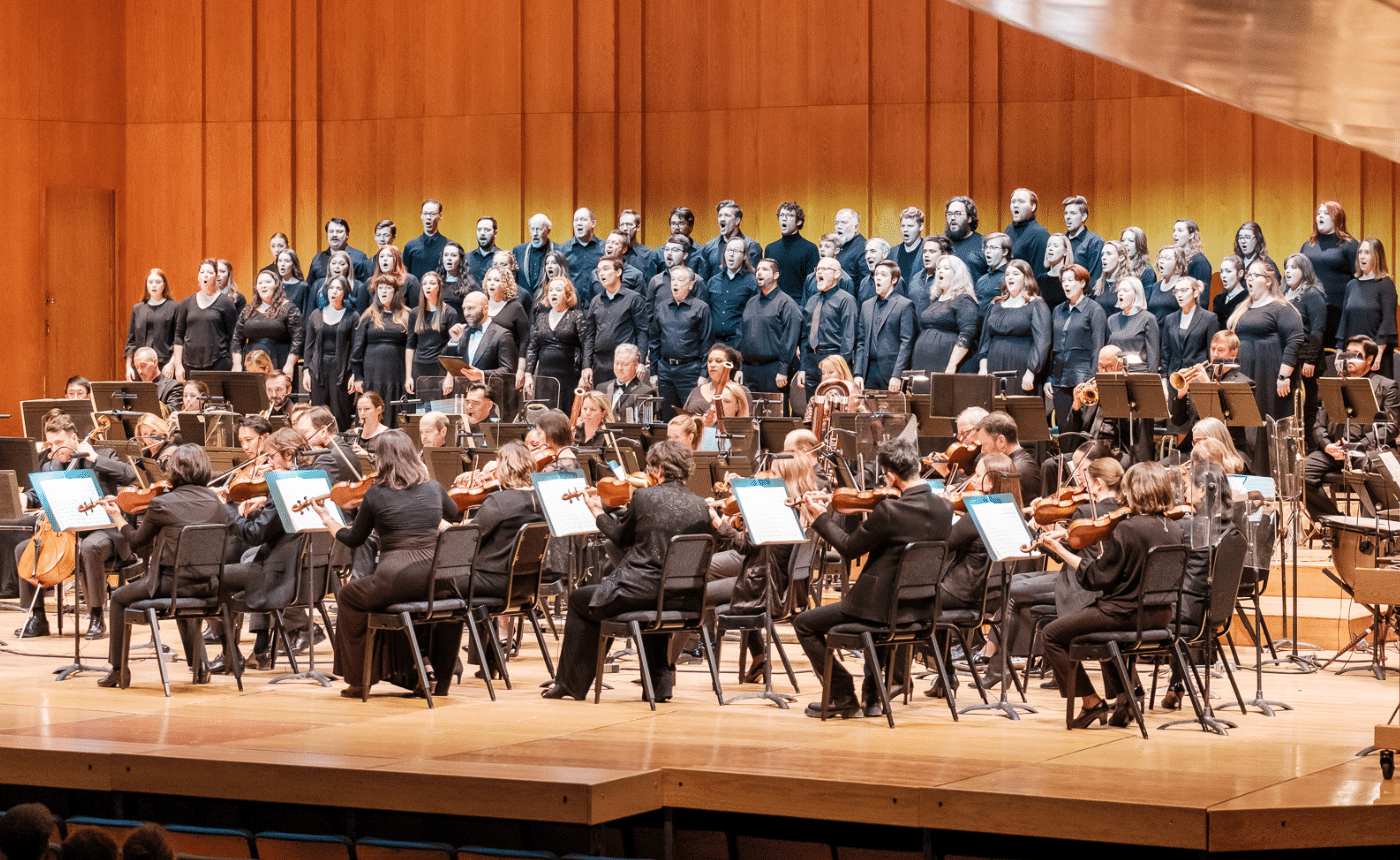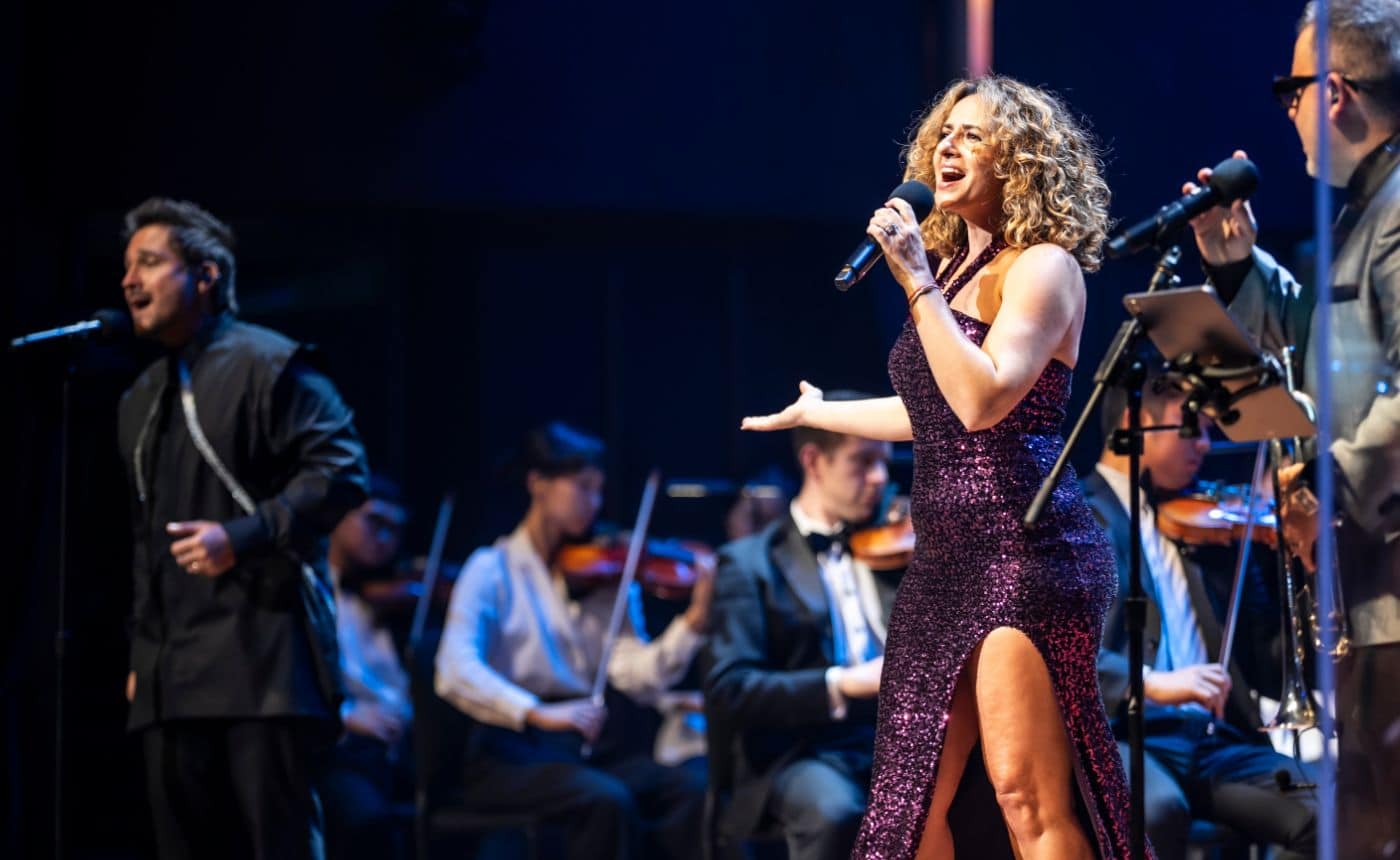Scriabin – The Poem of Ecstasy, Opus 54 (Symphony No. 4)
Alexander Scriabin (1872 — 1915): The Poem of Ecstasy, Opus 54 (Symphony No. 4)
Instrumentation: 3 flutes, piccolo, 3 oboes, English horn, 3 clarinets, bass clarinet, 3 bassoons, contrabassoon; 8 horns, 5 trumpets, 3 trombones, tuba; timpani, bass drum, church bell, crash cymbals, glockenspiel, tam tam; strings
Performance time: 22 minutes
Background
More than a century after his death, is Alexander Scriabin a victim of religious discrimination? Scriabin was outspoken about his religious beliefs, which — during his lifetime, and to a much greater extent after it — were viewed as suspiciously eccentric and extremist. Today’s musicologists point out the striking arc of Scriabin’s fame: During his brief life, which overlapped those of Tchaikovsky, Rimsky-Korsakov and Stravinsky, he was one of the most renowned composers of his day, with a prominent place in the Russian pantheon. Death did not change his music, but it certainly changed his music’s reputation, pushing it into a steep decline.
There is little doubt that the modern unease with Scriabin’s persona as a self-declared poet-musician-philosopher-prophet has cast a shadow over his music. He was frank about his messianic mission: While conceptualizing an autobiographical opera, he would freely declare that “I am the apotheosis of world creation…the aim of aims…the end of ends.” His plans for a hugely scaled music drama along the lines of a Wagnerian Gesamtkunstwerk called for a synthesis of all the arts, and it is clear that he believed its performance — planned as a week-long event at a location in the Himalayas — would trigger a joyful global apocalypse akin to the biblical concept of the End of Days.
Yet in other respects Scriabin’s life strikingly resembles those of favorite Russian composers of the late 19th and early 20th centuries. He was born into a prominent Muscovite family on the Orthodox Christmas Day. His relatives had distinguished themselves in the arts and the military, but his mother, a musician, died when the young Scriabin, known as Sascha, was just a year old. A frail child with a strong will, he was raised by his grandmother, aunt and great-aunt, and showed his intellectual and musical gifts early. Advanced private instruction led him to the Moscow Conservatory, where his instructors included the composition teacher Anton Arensky, and his classmates the legendary pianist Josef Lhévinne. The diminutive Scriabin, despite his small hands, was apparently Lhévinne’s chief rival in piano performance.
Scriabin’s life, if brief, was productive and eventful. As a piano virtuoso and composer, he began his career on Chopin’s model, performing his own works — mainly piano sonatas, etudes and a concerto — to critical acclaim. But in his twenties he also completed his first two symphonies, which were performed in Moscow under the baton of his former teacher Vasily Safonov. By the age of 32 he had relocated to Switzerland, begun his opera, separated from the wife by whom he’d had four children, and began composing his Symphony No. 3. He composed The Poem of Ecstasy between 1905 and 1908, a period when his involvement with the Theosophical movement was at its height.
What to Listen For
Exotic? Eccentric? Actually, Scriabin’s music is less challenging and more broadly appealing than we might guess. As American listeners we can perhaps more readily hear the effect of influences such as Nietzsche and Theosophy on his compositions if we compare him to the pioneering American poet Vachel Lindsay, whose verse was shaped by his commitment to Swedenborgian philosophy. In Scriabin’s case, the music that most effectively combines accessibility and lushness is that of his middle, or transitional period, which culminates with The Poem of Ecstasy. It is deeply felt and sincerely expressed in every note. Scriabin designated it as the Symphony No. 4 mainly because it mobilizes a full (and large!) orchestra. Symphonic in scope if not in structure, it is “ecstatic” in both of the principal meanings we associate with that word — expressing both a state of religious enlightenment and a feeling of bliss.
In his compositional approach, Scriabin employs formal elements that are rooted in traditional sonata form, but freely treated, flowing without breaks in movement. The symphony’s harmonies are frequently built on large intervals — ninths, elevenths, even twelfths — layered in a rich sonic brocade. The mood is lush.
It is also frankly sexual. Scriabin wrote about 300 lines of poetry associated with this work — not as a direct accompaniment, but as background and general illumination. His poem is overtly sexual in content, and originally bore the title Poème Orgiaque (Orgiastic Poem). Yet his intent here seems not to have been prurient, but rather in line with his religious view of music’s purpose on earth: as a touchstone between the sensual, finite world, and the infinite world of spirituality. Is that really so different from the view of the great traditional composers?











